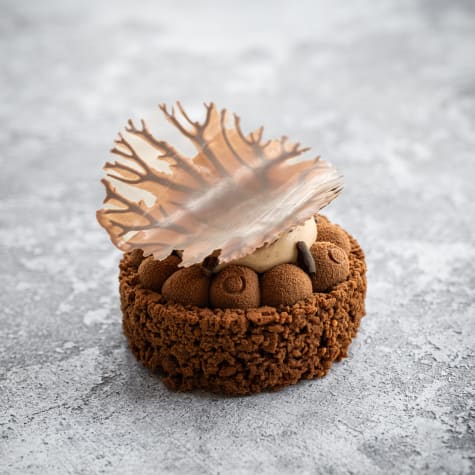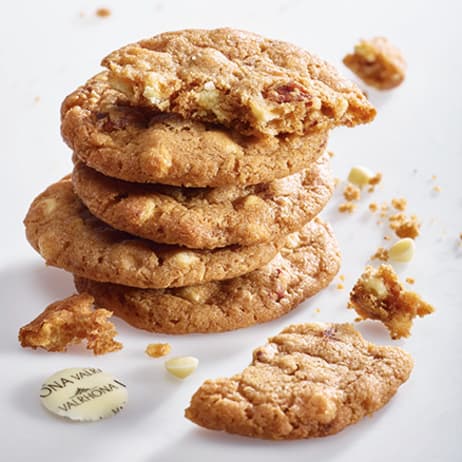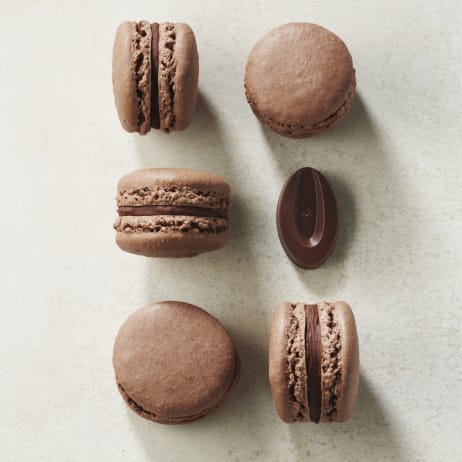You are using an outdated browser. Please upgrade your browser to improve your experience and security.
Our work to drive forward a collective movement that unites the gastronomy world also entails inspiring customers and dreaming up pastry-making’s future together. With this in mind, Valrhona has come up with a recipe inspired by B Corp’s philosophy. From the choice of ingredients to the various stages involved in creating this dessert, nothing was left to chance by Baptiste Sirand, a pastry chef and instructor at L’École Valrhona who, along with Jérémy Aspa, won the 2022 Meilleur Pâtissier: Les Professionnels television show.
Carefully selected quality ingredients are the basis for this dessert. Millot 74% Single Origin organic-certified chocolate comes from the Millot plantation, all of whose crops have been purchased by Valrhona for more than 30 years. According to studies carried out by Valrhona and the NGO Nitidae, cocoa from Millot has a carbon footprint of 0.57kg of CO2 per kilo of cocoa (measured from the producer’s plantation to the Valrhona chocolate factory), compared with an average of 23kg CO2 per kilo for all cocoa. Other ingredients include organic-certified Madagascan vanilla from Norohy, Burgundian blackcurrant purée from Adamance, and organic-certified French sugar. In addition to this, chef Baptiste Sirand used French honey from Manufacture du Miel, an ethical maker that actively supports the Observatoire Français d’Apidologie and its efforts to protect bees. Carefully chosen low-carbon hazelnuts (0.52kg of CO2eq/kg) round off the recipe.
“Reasonable Indulgence” principles have been applied to the recipe to make sure our pastries are not just consistently indulgent, but ethical too. This concept was invented by Valrhona’s exploratory pastry chef Frédéric Bau and detailed in his book of the same name published in 2020 by Editions La Martinière. “Reasonable Indulgence” asks us to rethink pastry-making’s rules to make it better for people and the planet, without compromising on taste. Using vegetable fats such as hazelnut oil, for example, has a dual advantage. They are good for your health (containing only 6% saturated fatty acids on average, compared with 55-60% for butter), but they also have a more intense flavor - which is why vegan ingredients are no longer just for 100% vegan pastries and can be used every day of the week. A reduced sugar count and some new Essentials recipes are other important final parts of the picture.
Because forward-looking pastry-making is also more energy-efficient, this recipe doesn’t require the use of a freezer and the baking process has been thought through particularly carefully. Only 0.199 KwH of energy went into making this dessert (for 8 minutes of cooking at 355°F or 180°C), whereas low-temperature cooking would have required 0.495 KwH (30 minutes at 250°F or 120°C), and steaming 1.917 kwH (15 minutes at 230°F or 110°C).
The recipe has been thought through to the last detail. Fleur de sel has been chosen over fine salt because it is richer in magnesium, calcium, and potassium.





